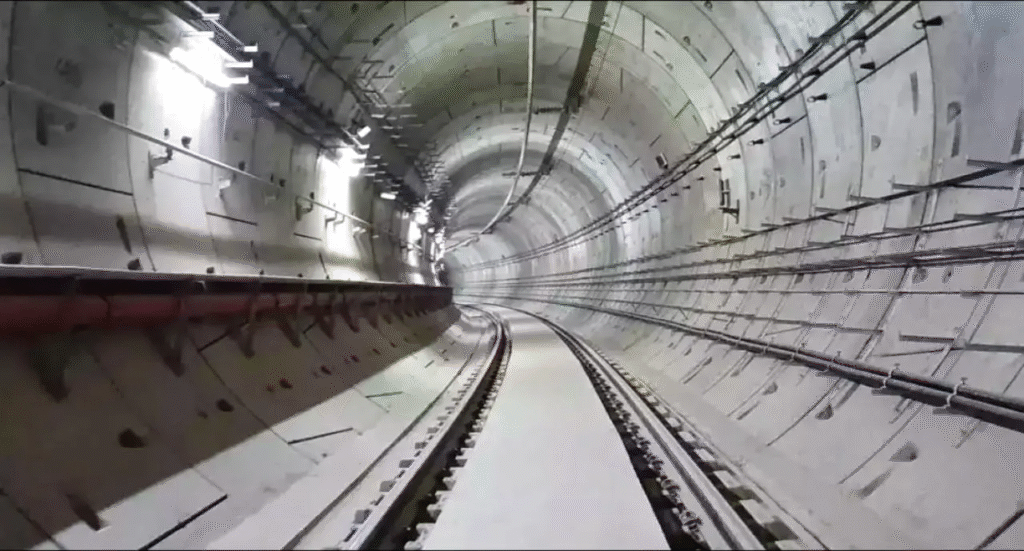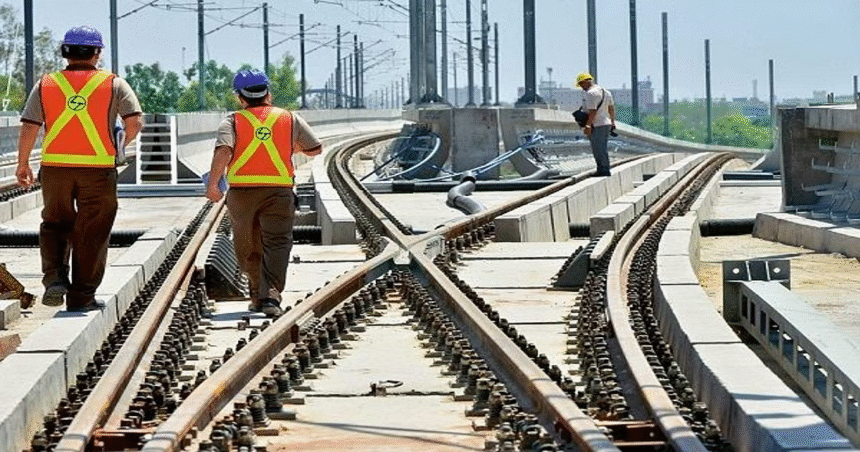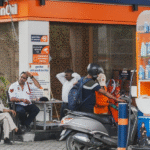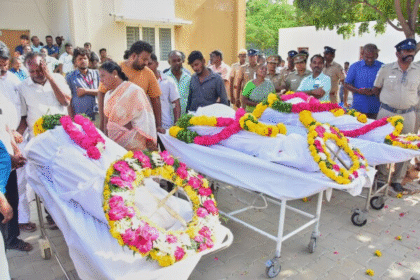₹5 Lakh Daily Penalty Pushes Metro Contractors to Airlift Workers – 1,000+ Laborers Rushed via Flights & Trains
Routine site inspections and manpower reviews by MMRDA officials have forced even laggard contractors to scale up manpower
Mumbai: Since the Covid-19 pandemic and related restrictions hit labour supply across industries, contractors engaged in construction of metro rail corridors in the Mumbai Metropolitan Region (MMR) have cited labour shortage as a key reason for delays running into months, sometimes years.

But the situation has undergone a sea change after the Mumbai Metropolitan Region Development Authority (MMRDA) introduced a new penalty framework in mid-June, whereby daily fines are imposed on contractors for shortage of manpower, especially at four met
The simple rule has pushed up labour deployment at the four metro rail corridors by 17-37%. Contractors are bringing in labourers from northern and eastern India by train, and in some cases, flights, to avoid penalties and the enhanced workforce is speeding up work considerably, sources in the MMRDA told Hindustan Times.
“The impact is particularly visible in high-priority stretches of Metro lines 4 and 4A, where contractors flew in nearly 60 workers from Odisha and another 40 workers from Uttar Pradesh by train,” said an MMRDA official. Another 150 workers from Uttar Pradesh would join the workforce at Metro 4 and 4A sites in the coming week, the official added.
As per the new penalty framework introduced by the MMRDA in mid-June, contractors are fined ₹1 lakh per day for labour shortage ranging 25-50%, and ₹2 lakh per day for labour shortage above 50%. Delays in meeting key project deadlines attract further penalties without prior notice.
“Prior to the implementation of the new penalty framework, labour deployment at several metro sites was either stagnant or declining, pushing back construction timelines significantly. But now, contractors are maintaining optimal workforce at metro sites to avoid penalties,” an MMRDA official told HT.
In a bold initiative to ensure rapid progress on Mumbai’s 150 km+ metro expansion, the MMRDA introduced a manpower mobilisation policy in mid‑June 2025:
- 25–50% workforce shortfall → ₹ 1 lakh/day penalty
- >50% shortfall → ₹ 2 lakhs/day penalty
This marks a shift from mere oversight to hard-lined enforcement, with no prior warning—meaning contractors face same‑day financial consequences. Regular audits, weekly deployment plans, and daily reports have also been mandated
With these steep penalties looming, contractors are scrambling to plug gaps—often by quickly flying workers in from other states (UP, Bihar, West Bengal, etc.), or booking train berths en masse. It’s not uncommon to see:
- 1,000+ laborers airlifted within days
- Bulk train bookings for hundreds of laborers at once
Sources indicate these emergency mobilizations prevent delays, but drive up costs—impacting contractors’ margins.
Mumbai’s metro corridors (Lines 2B, 5, 6, 7A, 9) are reaching critical milestones. Commissioner Sanjay Mukherjee underlined that “no room for compromise” remains in light of pressing deadlines
Instances in Chennai saw 40% worker absenteeism after the 2024 elections—with many not returning even months later
Projects elsewhere (Chennai Phase II etc.) confirm contractors must pull from remote labor pools to avoid penalties.
- Flight arrangements—sometimes chartered—for remote labor.
- Bulk train bookings (sleeper and AC coaches).
- Ground logistics—transporting workers from stations/airports to job sites.
- Weekly monitoring & reporting to dodge penalties.
These moves add tens of lakhs to operational cost—but they’re seen as preferable to ₹ 1–2 lakhs/day in fines, especially when pushed for time.
Mumbai’s Versova–Andheri–Ghatkopar contractor fined ₹ 10 lakh for safety lapses back in July ₹ 2025
Kochi Metro contractors once faced ₹ 20 lakh/day penalties in 2016 for delays
- Bengaluru’s IL&FS was fined over ₹ 1 crore in 2018 for missing deadlines .
This sharp stance is spreading across corridors and cities, signalling that metro boards are done tolerating delays.
“The workers who used to work here… now find it convenient to travel between work and home.
This shows contractors are now competing for labor, leading to briefer labor stays and rapid rotation—prompted by flight/train mobilization.
Keeps workforce levels high.
Helps meet Key Date (KD) milestones.
Avoids daily penalties and project delays.
Ballooning costs—flight/train, lodging, transport.
Disruption—workers in rotation may impact productivity/skill continuity.
Worker stress—many are away from home frequently.
India isn’t alone—worldwide, infrastructure mega-projects often include contractual:
- Liquidated damages for delays or resource shortages.
- Strict penalty clauses to enforce timelines.
What makes India unique is the scale of worker mobilization—airlifting laborers regionally on short notice hasn’t been typical until now.
- Partnering with labor suppliers in high-population states.
- Establishing dormitories near metro sites to accommodate fly‑in workers.
- Capturing real-time attendance via biometric systems.
- Pre-booking flight/train allocations to stay compliant with weekly deployment.
These systems double as insurance against penalties while generating operational resilience.
- Standardized mobilization processes across hubs.
- Possibly bulk charter contracts to reduce unit costs.
- Greater pressure on project budgets—leading to higher bids or calls for state subsidies.
Policy dialogues are already underway to balance:
- Public need for punctual metro delivery,
- Contractor viability and cost obligations,
- Labor welfare and retention.
Read Also : Powerful 6.2 Magnitude Earthquake Strikes Haryana, Intense Tremors Shake Delhi-NCR – Millions Affected








